1) Django Unchained is a “better” movie than 12 Years a Slave.
2) Harold Blood, Samuel L. Jackson (Stephen), and Brad Pitt (Bass): these three form the bedrock of the most original part of my argument. Force of character. Force of personality. (I’ll talk more about this later on).
3) The next part of my argument resides in “excitement”. In aesthetic pleasure. Yes, there’s something pleasing and thrilling about Tarantino’s excesses and indulgences, his operatic screams. And there’s something pleasing, immensely pleasing, about his success in creating a Western (a spaghetti Western) within a Slavery landscape because, well, that’s no easy task.
(and, plz, here let me point out that “Best Picture” does not mean “Most Necessary Picture”)
4) And the most important part of my argument is that 12 Years a Slave, though flawed, has become a kind of Sacred Cow and, thus, tends to get a free pass since it is so “necessary” (which it is, since “Americans tend to have amnesia about historical events*” and in the case of Slavery and all its horrors the amnesia is compounded by “deep trauma*”). So, because the movie is a valuable and needed wake-up call we can and need to kind of sweep its problems under the rug:
12 Years a Slave has some of the awkwardness and inauthenticity of a foreign-made film about the United States. The dialogue of the Washington, D.C., slave traders sounds as if it were written for “Lord of the Rings.” White plantation workers speak in standard redneck cliches. And yet the ways in which this film is true are much more important than the ways it’s false. (Mick LaSalle, San Francisco Chronicle)
5) The quotes starred (*) above are from a TIME interview with Henry Louis Gates Jr. This interview’s a decent quick-bite read, but much more valuable and meaty is Gates’ interview with Tarantino (you can find it here on The Root) which is a wonderful series of insights into Tarantino’s intentions as well as Gates’ opinion of Tarantino’s accomplishments in what Gates calls “the best postmodern take on Slavery*.”
(* this last quote, again, is from the Time interview in which Gates also hails 12 Years a Slave as “the most realistic account of Slavery”).
6) An important and necessary movie, again, of course, isn’t necessarily the best movie, but here are some quotes from Anthony Stokes’ “On How 12 Years a Slave Succeeded where Django Unchained failed”
“with a matter as serious as slavery you should have more respect.”
“12 years a Slave has emotional weight to spare and will leave you emotionally devastated. Which is what a movie about something as cruel as slavery should do. In no context should you walk out of a movie about slavery and refer to it as ‘fun’ or ‘funny.’ So if you want a goofy movie about slavery written by a guy going through arrested development then Django it is.” (note: emphasis here is mine)
“ultimately Django Unchained doesn’t take itself seriously so neither will I.”
7) Henry Louis Gates Jr (also, a consultant for 12 Years A Slave) does take Tarantino quite seriously: “I’m a scholar of slavery, and one of the things I notice in my classes [that I teach] is that we’ve become inured to the suffering and pain of slavery, that we’ve distanced ourselves enough from it, that people can’t experience the terror, the horrible pain, the anxiety, the stress, et cetera, that came with the slave experience. I thought that in Django you really began to reinsert contemporary viewers into that pain, particularly through the scene when the dogs tear Candie’s slave D’Artagnan apart.” (HLG talking to QT in their interview)
And, yes, indeed Django has plenty of horrible sequences. Has plenty of moments that will devastate you. Moments that will reinsert you into the pain. But it’s not just horrible, and it’s not just pain. It’s also a fairy tale. And it’s a revenge fantasy. And it is also fun. Thrilling.
8) When it comes to Art, of course (one would think), nothing’s impossible (much falls flat, but nothing’s impossible) so it freaks me out when people keep going on about what can and can’t be done aesthetically (even though I guess I’ll make my pronouncements too!). But, really, it just seems ridiculous moralizing, prudish and holier-than-thou (really uptight) to say you can’t do certain things in a movie about Slavery. That you have to be completely and only “respectful,” appropriate, serious, somber, etc.
9) The problem with Django, then, for the puritans, is the gore. All the gore of fun, thrills and frivolous gestures. All the actual gore of blood and the gore, also, of bullets. All the gore, guts, disgust and distastefulness of language. (I mean, really, these sorts of things shouldn’t be allowed in a movie about Slavery. I mean it’s in bad taste. I mean it’s just not right.) & how many (far too many!) times did we hear the N word ??
(Tarantino says all the uproar/fuss about the use of the N word in Django Unchained is “ridiculous,” but according to the movie’s detractors he’s just an adolescent who’s made a childish and inappropriate movie).
10) And when Gates means says that Django Unchained is “postmodern” I guess he means it’s not a straight and entirely realistic narrative. And I’m guessing, too, that if he was pressed, really pressed, to say which movie he preferred he’d be diplomatic, but say (in his heart at least) that he was happier with 12 Years a Slave because it, without distraction and much complications, breaks the dark ice in us. That it “uninures” us.
11) But just because 12 Years a Slave is a better History lesson, a better slap in the face, a better pill to swallow, it doesn’t also follow that it is a better movie. Doesn’t follow that critics should acknowledge some of its flaws (more on this soon) and yet still manage to call it a perfect masterpiece (5 stars out of 5), thereby oiling the Oscar rails for it to ride smoothly in on.
12) And now I’ll jump back to my point about the “force of character” by drawing on Harold Bloom’s insights on Shakespeare–yeah, I know, Bloom can be so annoying, so drooling in his Bardolatry, but the man knows his stuff. George Orwell, in an essay about Tolstoy’s unfortunate attack on The Bard, claimed that Shakespeare’s hold on people is through language and there’s truth to this, lots of truth to this, but Shakespeare’s biggest hold on us (all of us, black, white, etc) is through his unparalleled creations of personality, of character.
And Bloom points to Hamlet and Falstaff as being the most perfect and widest and most interesting characters ever created. He is probably right.
13) In Django Unchained, four hundred some years away from Shakespeare’s most serious plays )which also contained so much wit, thrill, fun, bawdiness, etc) Tarantino’s most interesting character by far (most compelling, haunting and unforgettable) is Stephen played by Samuel L. Jackson.
And here to illustrate the strong impression that Stephen makes on the viewer’s psyche here are some quotes taken from the Gates/Tarantino interview:
“One of the things that will disturb people much more than the use of the n-word, or much more even than the horrors of slavery, was Samuel L. Jackson’s amazing depiction of Stephen” (Henry Louis Gates Jr)
“Do I have any problem playing the most despicable black motherf–ker in the history of the world?” [Pause.] “No, I ain’t got no problem with that. No, man, I’m already in it.” (Samuel L. Jackson, as quoted by Quentin Tarantino)
“Why was it important for you to set up an opposition between the baddest black cowboy in the West, as Django, and the biggest Uncle Tom in the history of film, as Stephen? Why is that binary opposition important to your narrative structure?” (Henry Louis Gates Jr)
14) The Binary that Gates brings up is important. Binaries, like them or not, are essential for people and of course Tarantino is consciously exaggerating the good guy/bad guy dynamic here. And it is indeed, in Django Unchained, the source of incredible tension. A shrewd play by Tarantino that (almost Shakespeare-like, but still just Marlovian) sets up a compelling binary in contrast to the more recognizable and conventional one involving a system of bad white perpertrators and their oppressed black victims.
And in doing so he touches on a frightening human universality: that a person can be bad, evil, monstrous. And, indeed, the created and stage character, Stephen, is terrifying, horrible, and though exceptional and perhaps somewhat exaggerated he is also quite human (which makes him all the more haunting).
Tarantino here, of course, is cracking the dark ice in us but for many people it just doesn’t seem right. And, to be fair, this binary is touched upon in 12 Years a Slave, but weakly and meekly. (12 Years a Slave does confront us with menacing white characters superbly realized by excellent actors but none of these devastate in the way that Stephen does.)
15) The character, on the other hand, that stands out most in Steve McQueen’s 12 Years a Slave is Bass, played by Brad Pitt. I saw somewhere that Brad Pitt suffers some disease where he can’t remember people’s faces and from the way his face looks in 12 Years a Slave (lost, blank, zero) I can totally believe it. Even most of the film’s most glowing reviews set aside a caveat for the “misstep” of casting Brad Pitt (one of the film’s co-producers) as Bass:
“The one flaw with “Slave” comes in the form of Brad Pitt’s character, Samuel Bass, and you sense screenwriter John Ridley struggling to further the story along with Pitt’s abolitionist from Canada. While Pitt is fine, his dialogue is stiff, intended to be the bridge for the next development. Fortunately, it doesn’t diminish the film’s overall effect” (Randy Myers in the San Jose Mercury News).
16) Okay, I’m sure you’ll be relieved to hear, now, that I’m joking about Brad Pitt (Bass) being the most memorable character in a movie made of such an ensemble of skillfully-realized characters who either inflict or endure such horrors and evils. (This is a movie, after all, about Slavery). I mean, c’mon, I must be joking. Well, I am not joking. Up to the Pitt debacle 12 Years a Slave had built up quite a bit of gravitas (a kind of dark ice itself) which then gets smashed to pieces by the awkward and laughable Brad Pitt character.
(Pitt is listed as one of the film’s co-producers and how ironic to see the star of the movie, Chiwetel Ejiofor, quoted as follows: “I think the truth is we wouldn’t have been able to make this film without Brad Pitt, because of what he brings.”)
17) Yes, the Brad Pitt/Bass deal is a complete fiasco. As the movie looks to wrap itself up, looks to move Solomon back to his family up North, any continuity of immersion within the narrative (strained at times anyways) is wrecked by Pitt, like a teddy-bear landmine. And most critics are aware of the Pitt disaster (aware also of the movie’s problems as a “movie”) but in an amazing trick of double think (a strange binary) they don’t allow any of this to dull the movie’s Oscar glow at all. (on the contrary, the community of critics as a whole are actively buffing up its Oscar glow).
(and here, again, let me point out that “Best Picture” does not mean “Most Necessary Picture”)
18) For me 12 Years a Slave, all in all, rings a bit hollow. And I left the theater impressed, moved, pleased but a little skeptical. A little unsatisfied about the movie as a movie. But critics know (and in a way they’re right) that 12 Years a Slave should get as much attention and praise (awards, too) as it can it can because then more people will end up watching the movie. And more dark ice will be broken. And Hollywood can feel good about itself.
And if the Oscar comes (inevitable, it seems) well then we can all feel better about ourselves. Feel better about everything.
“12 Years a Slave” lays out an institution so twisted and wrong that its honest portrayal has been avoided for centuries. Yes, it’s dark and brutal. It needs to be.” (Tom Long, Detroit News).
19) But, but, but. But, the movie-making in 12 Years a Slave also crosses sometimes into the self-conscious, voluptuous and indulgent. Too intent on devastating and educating the viewer. And some critics have picked up on this:
“The film is not a flawless masterpiece. McQueen doesn’t communicate the cadence of time passing, and he triple-underlines his points (an intercepted letter to Northup’s family can’t be burned without its dying embers being squeezed for every drop of blatant pathos). Still, it is a bold, important provocation.” (Colin Covert, in The Star Tribune)
20) Okay, so let’s take stock here. There are major problems with dialogue. Problems with the “cadence of time passing” (no small problem!), indulgence and melodrama. But, again, in a neat display of double think so many critics acknowledge these problems but quickly dismiss them as being unimportant because well more “important” things are at play here. (this actually creeps me out a bit).
21) (And here I’ll triple underline my point too). . .The unfortunate reality that 12 Years a Slave can indeed be melodramatic and over-voluptuously rendered hasn’t stopped critics from focusing on their gushing, many of them without any reservations:
“Slavery is revealed for the unrelenting horror that it was. About time.” (Bill Goodykoontz in the Arizona Republic).
(and this just seems irresponsible, really. seems like a cheap sort of propaganda.)
22) Both Django Unchained and 12 Years a Slave are good movies. Neither are perfect. Both reinsert us into pain. Neither are perfect, or Oscar worthy even. But whereas 12 Years a Slave is handled, mostly, with kid gloves (nurturing and protecting its Oscar Hopes) Django, on the other hand, has been treated by some as a whipping boy.
23) When it comes to movies I believe in aesthetics more than the real world (ie, what’s important or necessary, socially). If I didn’t then I’d be lobbying for less big budget movies like Transformers and The Hunger Games and replacing them with ones about proper diet, dental care, safe sex, etc.
And I’d suggest, also, that all nominees for important awards be subjected to a thorough vetting process to ensure they’re important and necessary enough for such consideration.
24) Nothing is a sacred cow. Nothing.
25) Samuel L. Jackson’s realization of Stephen will haunt me forever. Brad Pitt’s Bass will too.
***
Tags: 12 Years a Slave, Django Unchained, Henry Louis Gates Jr, quentin tarantino, Shakespeare, steve mcqueen

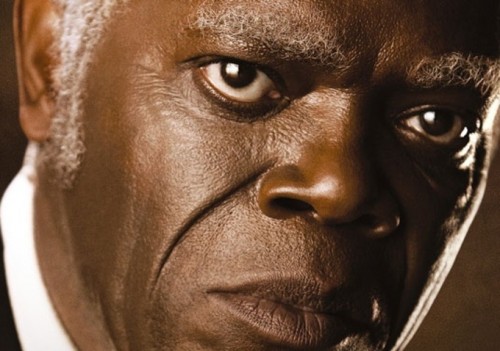
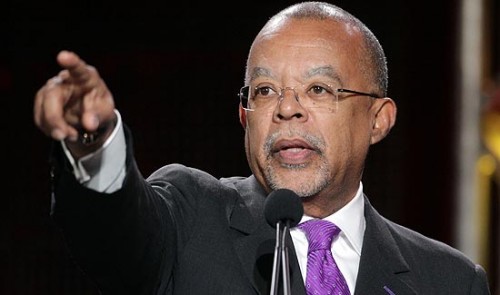
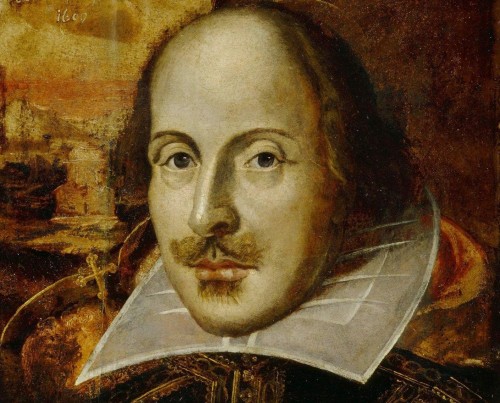
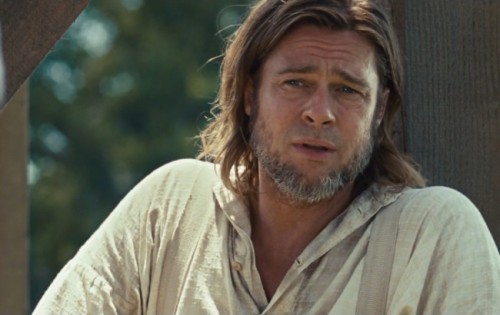
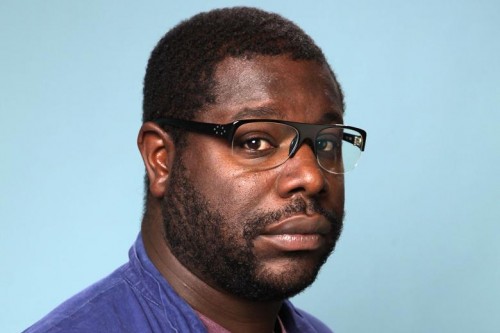
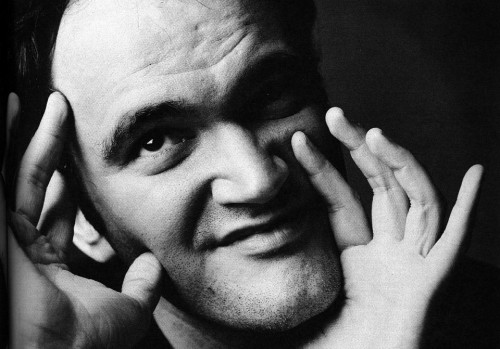
I will be reading this for a few days. Thanks for writing it.
ZZZZIPP HASN’T SEEN EITHER OF THESE MOVIES BUT HE WILL WATCH BOTH OF THESE MOVIES NOW
IDEA OF FALSTAFF/STEPHEN ENCOURAGING
ALSO, BRAD PITT AS A WEIRD BLANK RUPTURING THE MOVIE AROUND HIM
ZZZIPP HAS FOUND HIMSELF SUSPICIOUS OF AESTHETICS LATELY (OR MORE PROPERLY SUSPICIOUS OF HIS COMMITTMENT TO AESTHETICS) AND HAS BEEN INTERESTED IN IDENTIFYING/READING/SINGLING OUT MOVIES/BOOKS/MUSIC THAT ARE “NECESSARY”, BUT HE HAS ALSO FOUND HIMSELF “FEELING DEAD” WHEN TRYING TO APPROACH WRITING FROM THIS VANTAGE AND HE WOULD RATHER WRITE OUT OF SOME TORTURED MESS AND DEAL WITH IT LATER WHILE REMAINING AWARE THAT OPENING UP A WORK “SOCIALLY” CAN MAKE IT BOTH MORE COMPLEX/INVITING OR WHATEVER
DID THE ABOVE PARAGRAPH EVEN MAKE SENSE
HOW DO YOU EVEN OPEN UP A WORK SOCIALLY?
DO YOU JUST LIKE NOT MAKE ASSUMPTIONS ABOUT THINGS
DO YOU TRY TO LIKE EMPATHIZE MORE EVEN AS YOU ARE TREATING YOUR CHARACTERS BADLY IDK
ABOVE THREE SENTENCES FEEL LIKE SOMETHING THAT WOULD COME UP IN A REALLY TEDIOUS WRITING WORKSHOP
ANYWAY THANKS RAUAN
thanks ZZZZIPP … I think Necessary’s all fine and dandy, I just don’t like it getting a free pass critically, just because it’s so Necessary… so Important,… and write wherever yr obsessions take ya !
YES ZZZIPP LIKED THAT YOU DIDN’T SEEM TO BE SETTING UP SOME FALSE BINARY EVEN AS YOU ADVOCATED FOR THE ENTERTAINMENT VALUE OF BINARIES OR SOMETHING
“COOL”
“THOUGHTFUL”
I’m just glad Quentin decided it was his job as a white man to give black people the great american hero they have lacked for so long.
i guess you’re right, Alex, writers and artists should sit around and wait for governments and societies to assign them jobs.
thanks for commenting!
Thanks for replying! Even if your reply fallaciously suggests that’s what I’m suggesting.
Look, I just think Quentin taking it upon himself to decide that black people have no American hero and that he’s going to generously give them one is a bit condescending.
I haven’t seen 12 yrs yet. Will report back in time.
Also my perception of Django is skewed because there was an extremely loud stranger sitting in the seat directly beside me ruining everything.
yeah, Loud strangers: can’t live with them, can’t live without them.
my favorite part of django – the ONLY part i liked really – was
****SPOILER ALERT****
when QT BLEW HIMSELF UP with dy-no-mite
haven’t seen 12 yrs – yet
reminds me of Brad Pitt in 12 Years a Slave :)
dammit Klassnik you didn’t say ****SPOILER ALERT****
but, Mimi, i’m a SPOILER ALERT …
Thank you for this.
This: “When it comes to movies I believe in aesthetics more than the real world (ie, what’s important or necessary, socially). If I didn’t then I’d be lobbying for less big budget movies like Transformers and The Hunger Games” … You can’t do both? ;)
I get that “ART FOR ART’S SAKE” is sacred, and needed to be a position to be the first major secular thing to be protected. But art for art’s sake is as sucked off, institutionalized, and acceptable an idea as any right now, so might the more radical & challenging art be BOTH aesthetically wild & beautiful & compelling AND just & humane?
Also, why can’t you advocate for no big budget/blockbuster movies but still desire aesthetic ones (i.e. just shoot for cheap and beautiful? there are plenty of those movies being made.)?
Nice article, but — even as someone who overuses them — you might want to think about your use of parentheses (there is an unclosed parenthesis in #12). They get distracting. If you have a parenthetical statement to make, why not incorporate it better into the writing, or leave it out. Is your reliance on parenthetical statement conscious? I’m not trying to pick nits, the article is nice.
Also, mechanically, if the parenthetical statement is a complete sentence, should there be included within the parentheses a period? And what if the complete parenthetical sentence ends another sentence? should one place another period just outside the closed parenthesis? Or should the complete parenthetical sentence be outside any other sentence. (If so, I feel like a horses patoot.)
hi Ken,…
in response to your 2nd question– yes, of course–
I was at the end there just thinking thru a logical extension of the end-justifies-the-means argument (ie, acknowledging flaws, many of them quite serious, but still oiling the movie up for Oscar triumphs, champagne, and everyone feeling good about themselves because something good “socially” has been accomplished ) so I was being a little sarcastic..
also, I don’t think 12 Years a Slave needed to be “aesthetically wild” but I do think it could have been better in many ways…. (and i’m not going after the movie just because it’s “just and humane”)..
so, i guess we’re pretty much on the same page because wouldn’t it be great if 12 Years really was a masterpiece ??
thanks for reading and glad you enjoyed. and you’re right that I have a problem with ( ) which I need to be careful of. unfortunately ( ) are just one of my awkward quirks of grammar usage. I do my best in these more serious sorts of posts but at the end of the day the prose I’m working with is my prose. thanks, again, though.
DJANGO UNCHAINED is probably one of the most stupid movies I’ve seen in the last 40 years.
It’s the only reason Pitt would accept the role:-)
“most stupid”
The thing is. I totally respect your opinion. I think the problem here comes from the comparison itself. They are not really the same movie, much less the same ballpark. It’s true that they both feature slavery as a main premise throughout. But as a whole, Tarantino has always stated his love for the “spaghetti western”, he mentions that his favourite film genre is the western, and he specifically loves Sergio Leone films. In “Django Unchained” he said he was inspired by the films of Sergio Corbucci, who was an Italian spaghetti western director who’s westerns were usually more violent, dark and more exploitative than his contemporaries (i.e. more edgier), and of course Tarantino used the original “Django” (made in the 60’s) as a reference here. By deciding to have a black leading man and setting it on a slave plantation he wanted to explore an area which has not been addressed before in American cinema (specifically within westerns). Tarantino famously said that he “makes films that he himself would like to see made”. So many of his films are “homages” to previous film genres (i.e. Pulp Fiction references 60’s French New Wave cinema, Reservoir Dogs references Hong Kong 80’s gangster films, “Jackie Brown” references 70’s blacksploitation flicks, “Inglorious Basterds” made after Italian and US WWII films (1960’s), and “Kill Bill” is a mix of everything).
On the other hand, you have to look at director Steve McQueen’s background. He’s an award winning artist, not a film director originally, but an art school graduate and was a turner prize winning artist before he became a film director. If you watch his first film “Hunger”, it deals with a tough (and controversial) subject, the IRA prison hunger strikes in 80’s Northern Ireland, which were not fiction, but real news. His second film “Shame” explores sex addiction (fictional story). So I think with “12 years a slave” he goes back to the same territory as his first film by basing it on real documented events, and his purpose is to present a real documentation of human suffering. It’s not a film which is designed to be seen more than once, in my opinion. Nor is it made to win awards (neither was Django Unchained, but I just want to say this to address people who think “12 years” was made just for the Oscars), it was made because it’s a very honest portrayal of what Slavery was like (in detail). Which is painful to watch.
In my opinion it’s unfair to put them in the same category as they both have different starting points. “Django Unchained” is an easier and more audience friendly movie because of Tarantino’s style. It’s meant to be a great revenge film where the bad guys get what they deserve and the audience can breathe a sigh of relief at the end. The whole premise of “Django Unchained” is explained during a scene between Django and Dr. Shultz where he tells him of the German story of Siegfried and Broomhilde, where a man will go through hell to rescue his woman (at any price). It’s like a marriage between “Kill Bill” and “Inglorious Basterds” in the “sweet revenge” aspect of it.
12 years a slave on the other hand is meant to be a historically faithful, accurate portrayal of Slavery as it was in the Southern States in 1853. Note: Django Unchained also does this, it’s portrayal of slavery is also authentic, but it carries a fictionalised “backstory” to make it more accessible and dramatic. 12 years does not have a theatrical quality designed to give the audience a conventional story approach. It’s more of a cold, hard “this is how it was” portrayal. Which makes sense, because it’s based on a specific man’s (Solomon Northrup) memoirs of his experiences of being separated from his family for 12 Years, whilst experiencing all aspects of the Southern slave system at it’s height.
Just to finish, it’s probably a lot like comparing another Tarantino film like “Inglorious Basterds” with “Schindler’s List” or “The Pianist”. I think that with Tarantino’s films audiences will enjoy more and it’s almost like putting tough subjects (Nazi’s/KKK/White Supremacy) in a way which is easier and more accessible for people to “digest” (i.e. you have a main hero + revenge storyline). It’s a lot like a play or a Shakespearean Drama. But with “12 years” you have an unflinching historical document which has been put to film. Which no one will really like to watch, or want to see again but which NEEDS to have been made (just like films like “Schindler’s List” etc. also have their place (mainly educational purposes). Steve McQueen actually stated that he hoped to make a film which would be shown in schools as part of their curriculum on history (much like Schindler’s List has for holocaust studies).
My final verdict:
I love “Django Unchained” more than I do “12 Years a Slave”. It is more fun, more accessible, I will never get tired of watching it. But on the other hand, I’m so happy that a film like “12 Years” has been made, and even though I may not want to watch it again, it has it’s place, and I would eventually tell my children to see it as part of their “history education” once they were older.
The thing is. I totally respect your opinion. I think the problem here comes from the comparison itself. They are not really the same movie, much less the same ballpark. It’s true that they both feature slavery as a main premise throughout. But as a whole, Tarantino has always stated his love for the “spaghetti western”, he mentions that his favourite film genre is the western, and he specifically loves Sergio Leone films. In “Django Unchained” he said he was inspired by the films of Sergio Corbucci, who was an Italian spaghetti western director who’s westerns were usually more violent, dark and more exploitative than his contemporaries (i.e. more edgier), and of course Tarantino used the original “Django” (made in the 60’s) as a reference here. By deciding to have a black leading man and setting it on a slave plantation he wanted to explore an area which has not been addressed before in American cinema (specifically within westerns). Tarantino famously said that he “makes films that he himself would like to see made”. So many of his films are “homages” to previous film genres (i.e. Pulp Fiction references 60’s French New Wave cinema, Reservoir Dogs references Hong Kong 80’s gangster films, “Jackie Brown” references 70’s blacksploitation flicks, “Inglorious Basterds” made after Italian and US WWII films (1960’s), and “Kill Bill” is a mix of everything).
On the other hand, you have to look at director Steve McQueen’s background. He’s an award winning artist, not a film director originally, but an art school graduate and was a turner prize winning artist before he became a film director. If you watch his first film “Hunger”, it deals with a tough (and controversial) subject, the IRA prison hunger strikes in 80’s Northern Ireland, which were not fiction, but real news. His second film “Shame” explores sex addiction (fictional story). So I think with “12 years a slave” he goes back to the same territory as his first film by basing it on real documented events, and his purpose is to present a real documentation of human suffering. It’s not a film which is designed to be seen more than once, in my opinion. Nor is it made to win awards (neither was Django Unchained, but I just want to say this to address people who think “12 years” was made just for the Oscars), it was made because it’s a very honest portrayal of what Slavery was like (in detail). Which is painful to watch.
In my opinion it’s unfair to put them in the same category as they both have different starting points. “Django Unchained” is an easier and more audience friendly movie because of Tarantino’s style. It’s meant to be a fun revenge film where the bad guys get what they deserve and the audience can breathe a sigh of relief at the end. The whole premise of “Django Unchained” is explained during a scene between Django and Dr. Shultz where he tells him of the German story of Siegfried and Broomhilde, where a man will go through hell to rescue his woman (at any price). It’s like a marriage between “Kill Bill” and “Inglorious Basterds” in the “sweet revenge” aspect of it.
12 years a slave on the other hand is meant to be a historically faithful, accurate portrayal of Slavery as it was in the Southern States in 1853. Which is not designed to give the audience a conventional story approach. It’s more of a cold, hard “this is how it was”.
Just to finish, it’s probably a lot like comparing another Tarantino film like “Inglorious Basterds” with “Schindler’s List” or “The Pianist”. I think that with Tarantino’s films audiences will enjoy more and it’s almost like putting tough subjects (Nazi’s/KKK/White Supremacy) in a way which is easier and more accessible for people to “digest” (i.e. you have a main hero + revenge storyline). It’s a lot like a play or a Shakespearean Drama. But with “12 years” you have an unflinching historical document which has been put to film. Which no one will really like to watch, or want to see again but which NEEDS to have been made (just like films like “Schindler’s List” etc. also have their place (mainly educational purposes). Steve McQueen actually stated that he hoped to make a film which would be shown in schools as part of their curriculum on history (much like Schindler’s List has for holocaust studies).
My final verdict:
I love “Django Unchained” more than I do “12 Years a Slave”. It is more fun, more accessible, I will never get tired of watching it. But on the other hand, I’m so happy that a film like “12 Years” has been made, and even though I may not want to watch it again, it has it’s place, and I would eventually tell my children to see it as part of their “history education” once they were older.
green Coffee 800
25 Points: 12 Years a Slaves Glaring Flaws Wont Deny It A Oscar – (Django Unchained Also Discussed) | HTMLGIANT